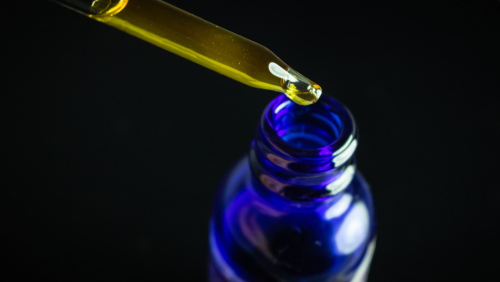
CBD For Scleroderma
According to the National Institutes of Health, scleroderma is a comparatively rare disease and it affects between 50 to 300 people per million. Scleroderma is divided into several types, each with its own set of symptoms. Some people will just have minor skin irritations, while others will have a life-threatening condition.
Scleroderma is derived from the Greek term scleroderma, which means “thick skin.” This is an autoimmune disease and it occurs when the immune system targets connective tissue and causes excessive collagen production. When the body creates too much collagen, it can lead to fibrosis, a sort of scarring.
Treating Scleroderma
Scleroderma has no permanent cure. Therefore, treatments focus on controlling symptoms and reducing the disease’s progression. Doctors usually prescribe painkillers, heartburn medications, blood pressure medications, steroids, etc. for managing the symptoms of this condition. More radical scleroderma treatments may be required in severe situations.
Many recent studies are showing that CBD, a cannabinoid compound, could be used in managing the symptoms of scleroderma.
CBD For Scleroderma Treatment
CBD is among hundreds of active chemicals produced by the cannabis plant. Unlike THC, it has no psychoactive properties. It does, however, have a substantial effect on both physical and mental health. People have started utilizing CBD to ease the symptoms of a variety of disorders and to maintain their overall health in recent years.
CBD is a relatively new product and because of that, clinical data on its advantages are limited. It does, however, have proven to have anti-inflammatory properties. Since inflammation is a major cause of pain, this is excellent news for everyone suffering from scleroderma or other painful illnesses.
CBD is a cannabinoid, which means it interacts with the endocannabinoid system in the body (ECS). The ECS is a vital biological system that regulates mobility, memory, emotion, pain sensation, and immunity, among other things. Experts now suspect that the endocannabinoid system may play a role in scleroderma. Clinical experiments are being conducted all around the world to see if cannabinoids can help.
Final Thoughts
Scleroderma is a painful, sometimes life-threatening disease with few treatment options. It’s no surprise that some people are turning to CBD for relief. Although there is currently no research into CBD for scleroderma, several trials are looking into the effects of synthetic cannabinoids. CBD oil may be worth a shot until these medications become more widely available.











Leave A Message